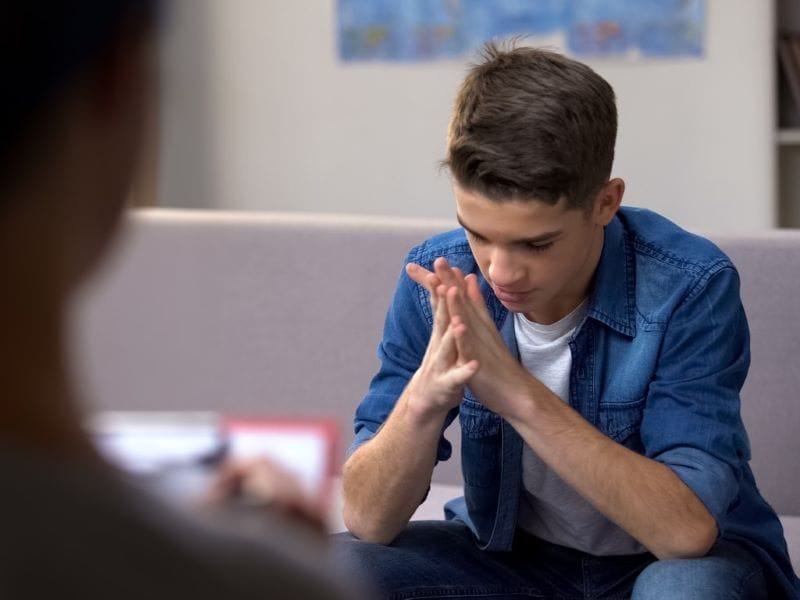How Hurricanes Affect Mental Health and 10 Ways to Help Your Kids
Experiencing back-to-back hurricanes can be very frightening, and the days following the storm can be extremely stressful.
Most families recover over time, especially with the support of relatives, friends and their community. But each family is different, and how long it takes them to recover will depend on their experience riding out the hurricane, evacuation and the extent of damage and loss.
The Center for Behavioral Health at Johns Hopkins All Children’s Hospital has experts to help manage a child’s behavioral, emotional and mental health following a hurricane, and is here to provide support, stability and reassurance.
10 Tips to Help Children Coping after a Hurricane:
Maintain Routine
Re-establish normal daily routines for meals, bedtime and activities to provide a sense of stability and predictability. It is sometimes hard when there has been so much transition, but try to keep up with three meals a day, snacks and a routine bedtime and morning wake up time.
Open Communication
Spend time each day with your child, listening for 5-10 minutes. Encourage your child to express their feelings and fears. Listen to them without judgment and reassure them that their feelings are valid. Let them know that it's normal to feel scared, angry or sad after a disaster and that many people experience these feelings.
Limit Media Exposure
Reduce exposure to news coverage about the hurricane to avoid overwhelming or re-traumatizing children. Avoid vivid videos and photos of hurricane destruction.
Stay Age-Appropriate
Use simple, honest explanations about what happened, and avoid unnecessary details that may cause additional fear.
Offer Reassurance and Safety
Reassure them that you will do everything you can to keep them safe and that people are working to restore normalcy. Develop a family safety plan so that they know what the plan is in the case of the next potential hurricane.
Encourage Physical Activity
Get outside and involved in activities. Whenever possible, involve them in safe indoor and outdoor activities or exercise to help reduce stress and improve mood.
Address Sleep Concerns
If children have trouble sleeping, offer comfort items like a favorite toy or blanket and establish a soothing bedtime routine. Make sure to keep your child’s sleep and your sleep as strong as possible, as this is a protective factor for mental health concerns.
Model Calm Behavior
Children look to adults for cues on how to react. Stay calm and composed to help them feel secure. Model your own coping strategies, including seeking social support, and verbalize how you are feeling to model emotion identification and coping.
Recovery Activities
Allow children to help with simple tasks that make them feel useful, like organizing items or making small repairs.
Monitor Mental Health
Look out for signs of anxiety, withdrawal or aggression, which may indicate that a child needs more support. Reach out to your pediatrician or trusted counselor or psychologist if needed. If there is a mental health crisis or your child expresses self-harm or thoughts of suicide, please call 988, the Suicide Prevention Lifeline, or go to your local emergency room.
Lastly, take care of your own mental health and wellbeing and ensure that you are getting sufficient sleep so you can be at your best, as well.
Visit https://t.jh.edu/HurricaneHelp for more information and resources to help after the hurricanes

Dr. Katzenstein is the director of psychology, neuropsychology and social work, and co-director of the Center for Behavioral Health at Johns Hopkins All Children’s Hospital. Dr. Katzenstein was honored for Excellence in Service and Professionalism at Johns Hopkins All Children’s Hospital in the Johns Hopkins Medicine Clinical Awards for 2020. Previously, Dr. Katzenstein was a private practitioner and Assistant Professor of Neurology at Indiana University School of Medicine/Riley Hospital for Children in Indianapolis where she provided neuropsychological evaluations, consultations and academic coaching for children and adolescents.
After graduating from Indiana University Purdue University Indianapolis, she completed a pediatric internship and fellowship at Texas Children's Hospital/Baylor College of Medicine. Dr. Katzenstein is board certified in pediatric neuropsychology and clinical neuropsychology.
Originally published in the November 2024 issue of Tampa Bay Parenting Magazine | iStock-1170895949


